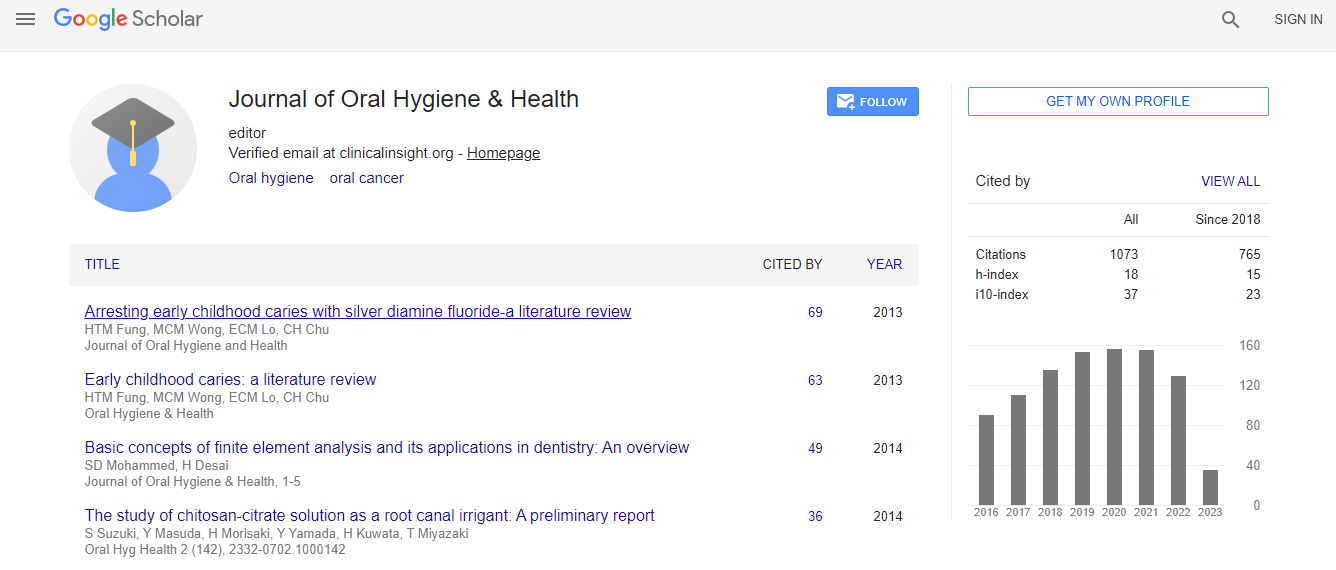Research Article
Impaired Glucose Tolerance and its Association to Oral Cancer
Nandita Shenoy*1, Manu Prasad Sen1, Prabha Adhikari2, Ashok Shenoy3, Junaid Ahmed1 and Muralidhara Yadiyal2
1Department of Oral Medicine and Radiology, Manipal College of Dental Sciences, Mangalore, India
2Department of Medicine, Kasturba Medical College, Mangalore, India
3Department of Pharmacology, Kasturba Medical College, Mangalore, India
- *Corresponding Author:
- Nandita Shenoy
Department of Oral Medicine and Radiology
Manipal College of Dental Sciences
Mangalore, India
Tel: 91 9880530703
E-mail: ashok.shenoy@manipal.edu
Received Date: May 23, 2014; Accepted Date: July 21, 2014; Published Date: July 27, 2014
Citation: Shenoy N, Sen MP, Adhikari P, Shenoy A, Ahmed J, et al. (2014) Impaired Glucose Tolerance and its Association to Oral Cancer. J Oral Hyg Health 2:151. doi: 10.4172/2332-0702.1000151
Copyright: © 2014 Shenoy N, et al. This is an open-access article distributed under the terms of the Creative Commons Attribution License, which permits unrestricted use, distribution, and reproduction in any medium, provided the original author and source are credited.
Abstract
Background: Diabetes mellitus is a serious and leading health problem worldwide and is associated with severe acute and chronic complications that negatively influence both the quality of life and survival of affected persons. Growing epidemiologic evidence suggests that people with diabetes are at significantly greater risk for cancer in general and recent studies also demonstrated that glucose intolerance was associated with a higher risk of oral cancer death, beginning in the prediabetic range of glucose intolerance.
Aim: We undertook this study with the aim of finding out an association between impaired glucose tolerance and oral cancer along with finding out prevalence of other risk factors for oral cancer.
Subjects and Methods: 45 cases and 45 controls were selected for the study. Oral glucose tolerance was performed on subjects who satisfied inclusion criteria and were willing to sign informed consent form.
Results and Conclusion: Fifty three percent of the cases had abnormal glucose tolerance as compared to Thirty one percent of the controls. It was statistically significant with a p value of 0.032. To conclude, hyperglycemia (which includes IFG, IGT and diabetes) increase the risk of oral cancer two folds, however Impaired Glucose tolerance alone as defined by ADA does not appear to play a role.

 Spanish
Spanish  Chinese
Chinese  Russian
Russian  German
German  French
French  Japanese
Japanese  Portuguese
Portuguese  Hindi
Hindi 
